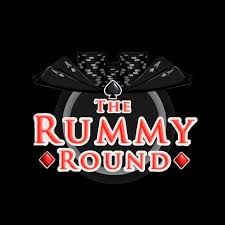Rummy Rounds, is a popular and strategic card game that revolves around forming sets and sequences. The game is structured into rounds, each of which plays a crucial role in the overall gameplay. Understanding how Rummy rounds work is essential for mastering the game and improving your chances of winning. In this article, we will explore the concept of Rummy rounds, how they function, and key strategies for succeeding in each round.
What Are Rummy Rounds?
In Rummy, a round is a single segment of the game where players aim to form valid combinations of cards (sets and sequences) and declare their hand. The round continues until a player successfully declares or the game reaches a predetermined condition that ends the round. Each round contributes to the overall score and outcome of the game.
Structure of a Rummy Round
- Dealing:
- At the start of each round, players are dealt a specific number of cards from the deck. The number of cards dealt typically depends on the variant of Rummy being played. For instance, in standard Rummy, each player might receive 13 cards.
- The remaining cards form the draw pile, with one card placed face up to start the discard pile.
- Gameplay:
- Turns: Players take turns drawing a card from either the draw pile or the discard pile and then discarding one card from their hand. The objective is to form valid sets and sequences.
- Sets: A set consists of three or four cards of the same rank but different suits.
- Sequences: A sequence is a set of three or more consecutive cards of the same suit.
- Jokers: Some versions of Rummy include jokers that can be used as wild cards to complete sets or sequences.
- Declaration:
- A player can declare their hand when they believe they have formed valid sets and sequences. The player reveals their hand to the other players and ends the round.
- In some Rummy variants, the declaration also includes meeting specific conditions, such as achieving a certain number of points or completing special combinations.
- Ending the Round:
- The round ends when a player declares or when the draw pile is exhausted, depending on the rules of the game.
- After a declaration, players reveal their hands, and points are calculated based on the cards left in each player’s hand.
- Scoring:
- Winner: The player who declares their hand and meets the requirements is considered the winner of the round and typically scores zero points for that round.
- Losers: Players who do not declare or fail to form valid combinations must calculate the points for their remaining cards. These points are added to their total score.
Types of Rummy Rounds
Different Rummy variants and tournament formats may feature different types of rounds. Here are some common types:
- Single Round:
- In a single-round format, each round is played independently, and players accumulate points based on the outcome of each round. The player with the lowest total points at the end of all rounds is the winner.
- Multi-Round:
- In multi-round formats, the game consists of several rounds, and players accumulate points across all rounds. The overall winner is determined by the total points accumulated throughout the game.
- Knock Rummy:
- In Knock Rummy, players aim to “knock” or declare their hand when they have a low total of unmelded cards. The round ends when a player knocks, and points are calculated based on the remaining cards.
- Contract Rummy:
- In Contract Rummy, players must complete specific contracts or goals in each round. The contracts may involve forming particular sets or sequences. The game progresses through multiple rounds, with each round having different contract requirements.
Strategies for Winning Rummy Rounds
- Plan Your Moves: Develop a strategy for forming sets and sequences based on the cards you have and the cards being drawn. Aim to complete your combinations as efficiently as possible.
- Observe Opponents: Pay attention to the cards your opponents are drawing and discarding. This information can provide clues about their strategies and help you make better decisions.
- Manage Your Hand: Focus on reducing the number of unmelded cards in your hand. Discard high-point cards and prioritize forming valid sets and sequences.
- Use Jokers Wisely: If jokers are part of the game, use them strategically to complete difficult combinations. Avoid using jokers prematurely and consider their impact on your overall strategy.
- Adapt to the Game: Be flexible and ready to adjust your strategy based on the evolving game situation. Adapt to the actions of your opponents and the cards you draw.
Conclusion
Rummy rounds are the core units of gameplay, each contributing to the overall outcome of the game. Understanding how each round functions and implementing effective strategies can significantly enhance your Rummy experience and increase your chances of success. Whether you’re playing a single round or a multi-round game, mastering the dynamics of Rummy rounds is essential for becoming a skilled and competitive player. Embrace the challenge, refine your strategies, and enjoy the thrill of Rummy rounds.




